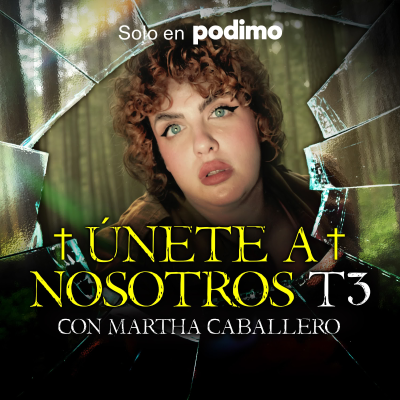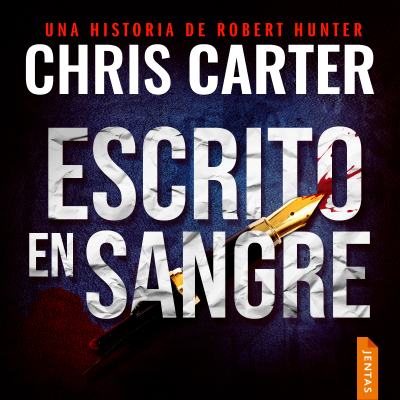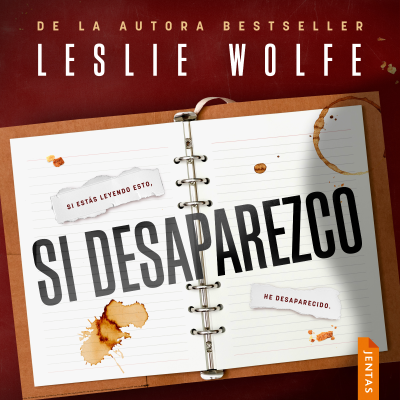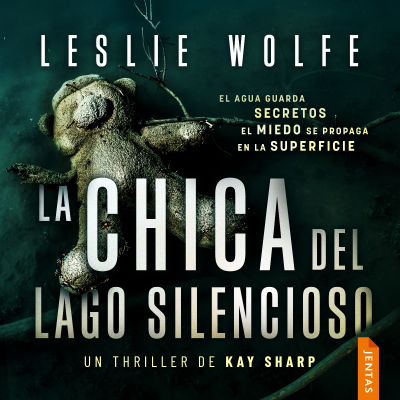
The Rialto Report
inglés
Cultura y ocio
Oferta limitada
2 meses por 1 €
Después 4,99 € / mesCancela cuando quieras.
- 20 horas de audiolibros / mes
- Podcasts solo en Podimo
- Podcast gratuitos
Acerca de The Rialto Report
Audio, photo, and documentary archives from the golden age of adult film in New York, and beyond. Established 2013.
Todos los episodios
191 episodiosJeffrey Hurst (1947-2025), R.I.P.
It all started over thirty years ago. I thought it would be interesting to track down people who’d been involved in the very first adult films because I was intrigued to learn what they remembered about the time – and find out how the experience had affected their lives afterwards. Bear in mind, this was over 30 years ago, before the era of social media, search tools, and online databases, so I had no idea how difficult this endeavor would be. But I also didn’t know how unwelcome my inquiries would prove – even if I did manage to find anyone to talk to. After all, most of the early pioneers used different names to conceal their identities, and therefore protect their future lives. A few of them – people like Annie Sprinkle, Jamie Gillis, or Ron Jeremy for example – were still around, quasi-public figures who’d been interviewed many times about their history. But I was more interested in finding the bit-part players, lesser-known figures, people whose involvement had been short, before disappearing, presumably blending back into more conventional 9-5 existences. What did they think about their involvement in such a salacious, unprecedented activity years earlier? One of these was the actor, Jeffrey Hurst [https://www.imdb.com/name/nm0403612/]. He’d been a handsome, friendly-looking, more-than-competent actor back in early films, always entertaining and engaging, and not just because of his standard-issue, best-in-class, 1970s porno mustache. Who was he, and what was his story? Well, his name wasn’t Jeffrey Hurst for a start: I met a director who’d known him and who reluctantly told me that his real name was Jeff Eagle. I misheard him – and so for the next five years, I searched high and low – and unsuccessfully – for an ex-sex film actor called ‘Jeff Feagle.’ Not my proudest moment, and a lot a wasted effort ensued. And then I met someone who was still in touch with Jeff, and who told me that Jeff was now a massage therapist living a quiet life in Tucson, Arizona. What’s more, apparently Jeff loved talking about his semi-scandalous past. I contacted him, and quickly became friends with one of the sweetest people I’ve ever come across. And so, when I started The Rialto Report, my interview with Jeff was one of the first that I put out as a podcast. Jeff died last November. He is much missed. This is our conversation. This episode running time is 61 minutes. ______________________________________________________________________________________ JEFFREY HURST PHOTOGRAPHS: Jeffrey Hurst [https://www.therialtoreport.com/wp-content/uploads/2013/03/RR-Flick-01.jpg]https://www.therialtoreport.com/wp-content/uploads/2013/03/RR-Flick-01.jpg Jeffrey Hurst [https://www.therialtoreport.com/wp-content/uploads/2013/03/RR-Image-03.jpg]https://www.therialtoreport.com/wp-content/uploads/2013/03/RR-Image-03.jpg Jeffrey Hurst [https://www.therialtoreport.com/wp-content/uploads/2026/02/RR-Image-02.jpg]https://www.therialtoreport.com/wp-content/uploads/2026/02/RR-Image-02.jpg Jeffrey Hurst [https://www.therialtoreport.com/wp-content/uploads/2026/02/RR-Image-01.jpg]https://www.therialtoreport.com/wp-content/uploads/2026/02/RR-Image-01.jpg Jeffrey Hurst [https://www.therialtoreport.com/wp-content/uploads/2026/02/RR_Jeff_Mutton.jpg]https://www.therialtoreport.com/wp-content/uploads/2026/02/RR_Jeff_Mutton.jpg Jeffrey Hurst [https://www.therialtoreport.com/wp-content/uploads/2026/02/RR_Jeff_Longshoreman.jpg]https://www.therialtoreport.com/wp-content/uploads/2026/02/RR_Jeff_Longshoreman.jpg Jeffrey Hurst [https://www.therialtoreport.com/wp-content/uploads/2026/02/RR_Jeff_Headshot3.jpg]https://www.therialtoreport.com/wp-content/uploads/2026/02/RR_Jeff_Headshot3.jpg Jeffrey Hurst [https://www.therialtoreport.com/wp-content/uploads/2026/02/RR_Jeff_Headshot.jpg]https://www.therialtoreport.com/wp-content/uploads/2026/02/RR_Jeff_Headshot.jpg Jeffrey Hurst [https://www.therialtoreport.com/wp-content/uploads/2026/02/RR_Jeff_Hair.jpg]https://www.therialtoreport.com/wp-content/uploads/2026/02/RR_Jeff_Hair.jpg Jeffrey Hurst [https://www.therialtoreport.com/wp-content/uploads/2026/02/RR_Jeff_Clown.jpg]https://www.therialtoreport.com/wp-content/uploads/2026/02/RR_Jeff_Clown.jpg The post Jeffrey Hurst (1947-2025), R.I.P. [https://www.therialtoreport.com/2026/02/22/jeffrey-hurst-3/] appeared first on The Rialto Report [https://www.therialtoreport.com].
Jeanna Fine: The Lost Interview – Podcast 157
Jeanna Fine [https://www.imdb.com/name/nm0277618/?ref_=nmbio_ov_bk] passed away last month. If you’re a regular listener to The Rialto Report [https://www.therialtoreport.com/], you’ll know that we like to interview a person from a different angle. It’s a more intimate and personal exploration, rather than just revisiting someone’s fleeting moments on camera. And it can be a challenge to convince someone to open up in that way. Sometimes it’s quick and easy to persuade a person to talk, but many others are more difficult: some interviews have simply ended up being off the record, or subjects changed their minds after finishing the conversation. A few decided that their interview shouldn’t be released until after they pass, while others just weren’t very interesting. And then there was my interview with Jeanna Fine. We’d originally contacted her for all the usual Rialto Report reasons: Jeanna had been one of the adult industry’s biggest, and longest lasting, A-list stars, and I was keen to hear her personal story. She’d first appeared in X-rated films in the mid 1980s – getting her name supposedly when Barbara Dare told her that Jeanna looked so fine. It was the tail period of the so-called ‘golden age’, just as the business was changing into a more corporate, studio-driven, rinse-and-repeat video industry. But there was nothing standard about Jeanna. She stood out from pack, fiercely individual, different from many other identikit, girl-next door performers, with her short platinum-blond spiky punk hair, or later, long dark hair that turned her into a scowling femme fatale. She was androgenous, full of confrontational attitude – and her scenes bristled with a bad-ass aggression. And Jeanna’s rebellious streak didn’t seem confined to her appearance, and the word was that she would turn up to shoots when and where she felt like it, and sometimes not at all. Sometimes she made scores of films in a matter of weeks, and then disappeared for months, even years. She had a long-term, and volatile, relationship with fellow actress Savannah. Jeanna eventually walked away from it – just before Savannah killed herself. On one of her breaks from the world of X, she got married and had a son, only to return to making films a few years later. Her on/off career continued into the 2000s. But, and there’s always a but, I wanted to know more about the woman behind the strong, confident, and forthright exterior, this character so full of piss and vinegar. I sensed a vulnerability, that her glamorous life in front of the camera perhaps masked secrets that were a world away from adult films. In short, who was the woman that created Jeanna Fine? So I reached out to her, and over the next 10 years, we became friends and confidants through a series of conversations, phone calls, emails, and texts. When we first spoke, she’d been living a rural life in upstate New York for over a decade, and was experiencing something of an existential crisis. She was at a crossroads in her life: she’d experienced recent tragedies – the suicides of both her husband and brother, she was empty-nester, and she was trying to figure out what she should do next. Intriguingly, she decided to emerge from anonymity and return to the X-rated industry. She turned up at an adult fan convention, she’d set up a Twitter account (as it was back then), and had a friend show her how she could earn money with a web-cam. But the return to the sex industry was problematic, and I could see that she hadn’t expected the extent of the emotions, the old secrets and lies, that this new direction was bringing back to the surface. What was being stirred in her past, I wondered? Jeanna insisted that she was keen to do the interview – she announced it on Twitter – but I was worried that she was feeling fragile. This podcast is the result of that conversation. With big thanks to Patrick Kindlon and Self Defense Family – for the wonderful monologue, and to Steven Morowitz and Melusine [https://melusine.com/] – for the Video-X-Pix photographs. This podcast is 52 minutes long. —————————————————————————————————————————————————————————– JEANNA FINE – VIDEO-X-PIX PHOTOS Jeanna Fine [https://www.therialtoreport.com/wp-content/uploads/2025/12/RR-jenna_fine_xx_03.jpg]https://www.therialtoreport.com/wp-content/uploads/2025/12/RR-jenna_fine_xx_03.jpg Jeanna Fine [https://www.therialtoreport.com/wp-content/uploads/2025/12/RR-jenna_fine_xx_01.jpg]https://www.therialtoreport.com/wp-content/uploads/2025/12/RR-jenna_fine_xx_01.jpg Jeanna Fine [https://www.therialtoreport.com/wp-content/uploads/2025/12/RR-jenna_039.jpg]https://www.therialtoreport.com/wp-content/uploads/2025/12/RR-jenna_039.jpg Jeanna Fine [https://www.therialtoreport.com/wp-content/uploads/2025/12/RR-jeanna_fine_sm.jpg]https://www.therialtoreport.com/wp-content/uploads/2025/12/RR-jeanna_fine_sm.jpg Jeanna Fine [https://www.therialtoreport.com/wp-content/uploads/2025/12/RR-jenna_fine_xx_02.jpg]https://www.therialtoreport.com/wp-content/uploads/2025/12/RR-jenna_fine_xx_02.jpg Jeanna Fine [https://www.therialtoreport.com/wp-content/uploads/2025/12/RR-jenna_038.jpg]https://www.therialtoreport.com/wp-content/uploads/2025/12/RR-jenna_038.jpg Jeanna Fine [https://www.therialtoreport.com/wp-content/uploads/2025/12/RR-jenna_037.jpg]https://www.therialtoreport.com/wp-content/uploads/2025/12/RR-jenna_037.jpg Jeanna Fine [https://www.therialtoreport.com/wp-content/uploads/2025/12/RR-jenna_fine_teaser_3.jpg]https://www.therialtoreport.com/wp-content/uploads/2025/12/RR-jenna_fine_teaser_3.jpg Jeanna Fine [https://www.therialtoreport.com/wp-content/uploads/2025/12/RR-jenna_fine_teaser_4.jpg]https://www.therialtoreport.com/wp-content/uploads/2025/12/RR-jenna_fine_teaser_4.jpg Jeanna Fine [https://www.therialtoreport.com/wp-content/uploads/2025/12/RR-jenna_fine_teaser_2.jpg]https://www.therialtoreport.com/wp-content/uploads/2025/12/RR-jenna_fine_teaser_2.jpg * JEANNA FINE PORTFOLIO Adult Video News [https://www.therialtoreport.com/wp-content/uploads/2025/12/RR-Jeanna-Fine-22.jpg]https://www.therialtoreport.com/wp-content/uploads/2025/12/RR-Jeanna-Fine-22.jpg Jeanna Fine [https://www.therialtoreport.com/wp-content/uploads/2025/12/RR-Jeanna-Fine-20.jpg]https://www.therialtoreport.com/wp-content/uploads/2025/12/RR-Jeanna-Fine-20.jpg Jeanna Fine [https://www.therialtoreport.com/wp-content/uploads/2025/12/RR-Jeanna-Fine-14.jpg]https://www.therialtoreport.com/wp-content/uploads/2025/12/RR-Jeanna-Fine-14.jpg Jeanna Fine [https://www.therialtoreport.com/wp-content/uploads/2025/12/RR-Jeanna-Fine-21.jpg]https://www.therialtoreport.com/wp-content/uploads/2025/12/RR-Jeanna-Fine-21.jpg Jeanna Fine [https://www.therialtoreport.com/wp-content/uploads/2025/12/RR-Jeanna-Fine-12.jpg]https://www.therialtoreport.com/wp-content/uploads/2025/12/RR-Jeanna-Fine-12.jpg Jeanna Fine [https://www.therialtoreport.com/wp-content/uploads/2025/12/RR-Jeanna-Fine-06.jpg]https://www.therialtoreport.com/wp-content/uploads/2025/12/RR-Jeanna-Fine-06.jpg Jeanna Fine [https://www.therialtoreport.com/wp-content/uploads/2025/12/RR-Jeanna-Fine-05.jpg]https://www.therialtoreport.com/wp-content/uploads/2025/12/RR-Jeanna-Fine-05.jpg Jeanna Fine [https://www.therialtoreport.com/wp-content/uploads/2025/12/RR-Jeanna-Fine-18.jpg]https://www.therialtoreport.com/wp-content/uploads/2025/12/RR-Jeanna-Fine-18.jpg * The post Jeanna Fine: The Lost Interview – Podcast 157 [https://www.therialtoreport.com/2025/12/07/jeanna-fine/] appeared first on The Rialto Report [https://www.therialtoreport.com].
Bud Lee – From Hyapatia and Asia to Only Fans, Part 2 – Podcast 156
Regular listeners will know that over the last few years, I’ve spoken to many female adult film actors who were active from the 1960s through to the late 1980s, and, as interesting as their experiences were, it also made me intrigued to find out what it was like to be a male in the business during the same time. So a few months ago, I contacted actor/director/agent and X-rated film producer, Bud Lee [https://www.imdb.com/name/nm0496928/], to hear about his life – which I was curious to hear about, not only because of his career, but also due to his marriages to two of the biggest stars of the 1980s and 90s, Hyapatia Lee [https://www.therialtoreport.com/2014/11/23/hyapatia-lee/] and Asia Carrera [https://www.imdb.com/name/nm0006562/]. In the first part of my conversation with Bud, he spoke about how he got into the industry with Hyapatia and the struggles they encountered being a couple in the business. This episode picks up in the late 1980s, when their relationship broke down just while Bud’s career making films for companies such as Vivid [https://en.wikipedia.org/wiki/Vivid_Entertainment], Playboy, and Adam and Eve [https://en.wikipedia.org/wiki/Adam_%26_Eve_(company)], was taking off. And Bud is still working today – filming scenes and being an agent – and he reflects on the significant changes that he’s seen in the industry, as well as the people involved. You can hear Part 1 of the podcast here [https://www.therialtoreport.com/2025/09/14/bud_lee/]. We have also included the transcript of an episode of the Donahue television show from 25 November 1986 which featured a conversation with Bud Lee, Hyapatia Lee, Jeanna Fine [https://www.imdb.com/name/nm0277618/], Tony Rush, Nina Hartley [https://www.therialtoreport.com/2015/02/22/nina-hartley/], and David Hartley [https://www.imdb.com/name/nm0366820/]. The full episode can be viewed here [https://www.youtube.com/watch?v=yXSE76oWod0]. This podcast is 49 minutes long. Bud Lee [https://www.therialtoreport.com/wp-content/uploads/2025/09/RR-the_ribald_tales_of_canterbury.jpg]https://www.therialtoreport.com/wp-content/uploads/2025/09/RR-the_ribald_tales_of_canterbury.jpg ——————————————————————————————————————————————————– BUD LEE AND HYAPATIA LEE – ON THE DONAHUE SHOW: FULL TRANSCRIPT Asia Carrera [https://www.therialtoreport.com/wp-content/uploads/2025/09/Phil-Donohue-01-scaled.png]https://www.therialtoreport.com/wp-content/uploads/2025/09/Phil-Donohue-01-scaled.png Bud Lee [https://www.therialtoreport.com/wp-content/uploads/2025/09/Phil-Donohue-02.png]https://www.therialtoreport.com/wp-content/uploads/2025/09/Phil-Donohue-02.png Asia Carrera [https://www.therialtoreport.com/wp-content/uploads/2025/09/Phil-Donohue-03-scaled.png]https://www.therialtoreport.com/wp-content/uploads/2025/09/Phil-Donohue-03-scaled.png Asia Carrera [https://www.therialtoreport.com/wp-content/uploads/2025/09/Phil-Donohue-04-scaled.png]https://www.therialtoreport.com/wp-content/uploads/2025/09/Phil-Donohue-04-scaled.png Asia Carrera [https://www.therialtoreport.com/wp-content/uploads/2025/09/Phil-Donohue-05-scaled.png]https://www.therialtoreport.com/wp-content/uploads/2025/09/Phil-Donohue-05-scaled.png Asia Carrera [https://www.therialtoreport.com/wp-content/uploads/2025/09/Phil-Donohue-06-scaled.png]https://www.therialtoreport.com/wp-content/uploads/2025/09/Phil-Donohue-06-scaled.png Asia Carrera [https://www.therialtoreport.com/wp-content/uploads/2025/09/Phil-Donohue-07-scaled.png]https://www.therialtoreport.com/wp-content/uploads/2025/09/Phil-Donohue-07-scaled.png Asia Carrera [https://www.therialtoreport.com/wp-content/uploads/2025/09/Phil-Donohue-08-scaled.png]https://www.therialtoreport.com/wp-content/uploads/2025/09/Phil-Donohue-08-scaled.png Asia Carrera [https://www.therialtoreport.com/wp-content/uploads/2025/09/Phil-Donohue-09-scaled.png]https://www.therialtoreport.com/wp-content/uploads/2025/09/Phil-Donohue-09-scaled.png Asia Carrera [https://www.therialtoreport.com/wp-content/uploads/2025/09/Phil-Donohue-10-scaled.png]https://www.therialtoreport.com/wp-content/uploads/2025/09/Phil-Donohue-10-scaled.png Asia Carrera [https://www.therialtoreport.com/wp-content/uploads/2025/09/Phil-Donohue-11-scaled.png]https://www.therialtoreport.com/wp-content/uploads/2025/09/Phil-Donohue-11-scaled.png Asia Carrera [https://www.therialtoreport.com/wp-content/uploads/2025/09/Phil-Donohue-12-scaled.png]https://www.therialtoreport.com/wp-content/uploads/2025/09/Phil-Donohue-12-scaled.png Asia Carrera [https://www.therialtoreport.com/wp-content/uploads/2025/09/Phil-Donohue-13-scaled.png]https://www.therialtoreport.com/wp-content/uploads/2025/09/Phil-Donohue-13-scaled.png Bud Lee [https://www.therialtoreport.com/wp-content/uploads/2025/09/Phil-Donohue-14-scaled.png]https://www.therialtoreport.com/wp-content/uploads/2025/09/Phil-Donohue-14-scaled.png Bud Lee [https://www.therialtoreport.com/wp-content/uploads/2025/09/Phil-Donohue-15-scaled.png]https://www.therialtoreport.com/wp-content/uploads/2025/09/Phil-Donohue-15-scaled.png Bud Lee [https://www.therialtoreport.com/wp-content/uploads/2025/09/Phil-Donohue-16-scaled.png]https://www.therialtoreport.com/wp-content/uploads/2025/09/Phil-Donohue-16-scaled.png Bud Lee [https://www.therialtoreport.com/wp-content/uploads/2025/09/Phil-Donohue-17-scaled.png]https://www.therialtoreport.com/wp-content/uploads/2025/09/Phil-Donohue-17-scaled.png Bud Lee [https://www.therialtoreport.com/wp-content/uploads/2025/09/Phil-Donohue-18-scaled.png]https://www.therialtoreport.com/wp-content/uploads/2025/09/Phil-Donohue-18-scaled.png Bud Lee [https://www.therialtoreport.com/wp-content/uploads/2025/09/Phil-Donohue-19-scaled.png]https://www.therialtoreport.com/wp-content/uploads/2025/09/Phil-Donohue-19-scaled.png Bud Lee [https://www.therialtoreport.com/wp-content/uploads/2025/09/Phil-Donohue-20-scaled.png]https://www.therialtoreport.com/wp-content/uploads/2025/09/Phil-Donohue-20-scaled.png * The post Bud Lee – From Hyapatia and Asia to Only Fans, Part 2 – Podcast 156 [https://www.therialtoreport.com/2025/09/21/asia-carrera/] appeared first on The Rialto Report [https://www.therialtoreport.com].
Bud Lee – From Hyapatia and Asia to Only Fans, Part 1 – Podcast 155
The adult film business is unique in that it has usually focused on women as the figureheads and main stars, and therefore often relegated men to the background. Over the last years, I’ve spoken to many female adult actors – from the 1960s through to the late 1980s, and it’s been interesting to see how their memories, experiences, and lives were affected as the sex film business changed. But I also wanted to hear from someone on the other side of the equation – and find out what it was like to be a male in the business, perhaps a partner of a major sex film star, or someone who was a performer, director, or agent in the business. Bud Lee [https://www.imdb.com/name/nm0496928/] is unique in that he has been – and still is – all of these things and more. And what’s remarkable about his life is that it mirrors the history of the industry itself: consider this – after meeting and marrying Hyapatia Lee [https://www.therialtoreport.com/2014/11/23/hyapatia-lee/], one of the biggest stars of the 1980s, they appeared in adult films together, before Bud became a director for adult industry mogul, Harry Mohney [https://en.wikipedia.org/wiki/Harry_Mohney], directing large and expensive productions like ‘The Ribald Tales of Canterbury [https://www.imdb.com/title/tt0089917/]’ before working for Vivid Video [https://en.wikipedia.org/wiki/Vivid_Entertainment], one of the biggest production companies of the era. Then Bud married Asia Carrera [https://en.wikipedia.org/wiki/Asia_Carrera], one of the biggest names of the 1990s adult film industry, making films for Playboy and Adam and Eve, before becoming a talent agent. Today he’s still filming, for performers wanting content for their OnlyFans accounts – a far cry from the golden age, and a stark reflection of just how much the business has changed. All this from someone who had no background in the sex film business before he met Hyapatia back in the 1970s – in fact he was a plumber who’d briefly considered divinity school and a theological life. This podcast is 65 minutes long. ——————————————————————————————————————————– [https://www.therialtoreport.com/wp-content/uploads/2025/09/RR_Bud-and-Hyapatia-2.jpg]https://www.therialtoreport.com/wp-content/uploads/2025/09/RR_Bud-and-Hyapatia-2.jpgBud and Hyapatia Lee Bud Lee [https://www.therialtoreport.com/wp-content/uploads/2025/09/RR_Bud-Lee-1.jpg]https://www.therialtoreport.com/wp-content/uploads/2025/09/RR_Bud-Lee-1.jpg Bud and Hyapatia Lee, 1984 AFAA red carpet Hyapatia Lee [https://www.therialtoreport.com/wp-content/uploads/2018/08/RR_1983_11_EroticFilmGuide_3_HyapatiaLee.jpg]https://www.therialtoreport.com/wp-content/uploads/2018/08/RR_1983_11_EroticFilmGuide_3_HyapatiaLee.jpg Bud Lee [https://www.therialtoreport.com/wp-content/uploads/2025/09/RR_Bud-Lee-4.jpg]https://www.therialtoreport.com/wp-content/uploads/2025/09/RR_Bud-Lee-4.jpg Hyapatia Lee [https://www.therialtoreport.com/wp-content/uploads/2025/09/RR_Hyapatia-1.jpg]https://www.therialtoreport.com/wp-content/uploads/2025/09/RR_Hyapatia-1.jpg Bud Lee [https://www.therialtoreport.com/wp-content/uploads/2025/09/RR_Bud-Lee-5.jpg]https://www.therialtoreport.com/wp-content/uploads/2025/09/RR_Bud-Lee-5.jpg * The post Bud Lee – From Hyapatia and Asia to Only Fans, Part 1 – Podcast 155 [https://www.therialtoreport.com/2025/09/14/bud_lee/] appeared first on The Rialto Report [https://www.therialtoreport.com].
Wade Nichols: ‘Like an Eagle’ – His Untold Story Part 3: The Soap Opera King – Podcast 154
In 1979, Dennis Posa [https://www.imdb.com/name/nm0629754/] was on the verge of stardom. Against all odds, as Dennis Parker, he’d just released a disco record on a major recording label and was managed by the same team responsible for many of the biggest disco acts of the time. I say, against all odds, because less than 10 years earlier, he’d been a college dropout, the product of a difficult childhood on Long Island who struggled with his sexuality, who had moved to New York to unsuccessfully pursue a career as a theater actor. Dennis was always a collection of contradictions: he was a private loner – who could also be the popular and gregarious center of attention socially; he took a desk job on Madison Avenue like a latter day backroom character in ‘Mad Men’ but he dreamed of acting and singing; he seemed happiest when he was in his beloved apartment painting a landscape or doing his carpentry listening to his jazz records but he also enjoyed hitting the road on his motorbike and driving across the country, or hanging out in the city’s gay bars at night. And then in the mid 1970s came adult film stardom – in straight sex films no less. His face – and body – adorning movie posters and adult film screens across the country as one of the industry’s top stars. That level of fame would be eclipsed however when he met the superstar disco music producer, Jacques Morali. They became a couple, and Jacques wanted to cast him as one of the Village People, before deciding to make Dennis a solo star. They recorded an album for Casablanca Records. This is what happened next. This podcast is 38 minutes long. ————————————————————————————————————————————– When Dennis’ LP, ‘Like an Eagle,’ was released in 1979, the promotional rollercoaster started in earnest. Early that year, Dennis made an appearance on The Merv Griffin Show. This was a big deal. The Merv Griffin Show was an American television talk show institution. It had run from 1962, and by the late 1970s was one of the most prestigious shows for celebrities to appear on. It was nominated for Emmy awards most years, and more often than not, won them. Just take a look at the guest list on the day that Dennis first appeared on it: it featured Glenda Jackson, David Soul of Starsky and Hutch, and Brooke Shields. Needless to say, Dennis sung ‘Like an Eagle’. Sadly, recordings of the episode have never been released, so we have to rely on the memories of those who tuned in to see it – and they vary somewhat. Henri Belolo, Dennis’ record producer, was over the moon: “I was just so happy to see Dennis on television,” he remembered. “Dennis was broadcast from coast to coast singing his heart out, and that was when there were just three or four TV channels – so everyone in the country could see him.” For Skip St. James, Dennis’ ex-partner from the early 1970s, the memories have a bittersweet tinge: “I didn’t see much of Dennis after he moved in with Jacques,” he said. “Then one night, out of the blue, he invited me over for dinner, and he turned on the Merv Griffin show, and there he was singing ‘Like an Eagle’ on TV – all dressed up in shiny silver clothes. He’d invited me over because he wanted me there to share it. I was impressed, although it was strange seeing him sing that kind of music. He hated disco and he hated dancing! Dennis was a jeans-and-leather guy, and was clearly uncomfortable in that silver lame’ jumpsuit. I thought he looked ridiculous. And when he smiled… it was like neon on his teeth. They were way too bright. But he was very proud of it, and I was very proud of him for it. We stayed in touch, but I never saw him again after that evening.” As for Steven Gaines, the co-writer of the big two songs on Dennis’ album, ‘Like an Eagle’ and ‘New York By Night’, well, his memory was less favorable: “When Dennis premiered ‘Like an Eagle’ on the Merv Griffin Show,” he said, “I invited a whole bunch of people over to my house. We all watched and suddenly Dennis appeared – and he looked like the Tin Man from The Wizard of Oz! And he couldn’t really dance or move either. It was very artificial and clumsy. It was so bad that we started laughing. There were six or seven of us there just rolling around on the floor because it was so bad.” Whatever people thought, Dennis was a hit, and he was in demand: he went on to make more television show appearances, including further bookings on The Merv Griffin Show, including a disco-themed episode on May 3, 1979, where he appeared with The Village People, The Ritchie Family, Patrick Juvet, and his partner, Jacques Morali. Jacques felt that it was his responsibility to get Dennis maximum exposure for the new record, and so he set up a list of high-profile engagements that included The Mike Douglas Show, another high-rated chat show, and an appearance in a French feature film ‘Monique’ (1978), which featured ‘Like an Eagle’ as its theme song. A special mention should also be made of an appearance on a French television show called Exclusif, which is effectively a music video for ‘Like An Eagle.’ You can still see it on YouTube and it’s glorious. In it, Dennis stands underneath the marquee of the Broadway Theater on 53rd Street singing ‘Like an Eagle’, before striding through the streets delivering an extravagant rendition, and getting a perplexed reaction from the New York commuters around him. He looks great, and you have to admire his absolute commitment. It’s peak Dennis Parker, disco star. * All this attention meant that Dennis was suddenly a celebrity around town, and nowhere was that more evident than on the nightlife scene. He was a regular at Studio 54, where there were lines around the block to get in, but Dennis was welcomed with open arms and ushered behind the famous velvet rope into the VIP area. Dennis may have been an awkward disco star, sometimes uncomfortable with all the glitz and glamor and preferring the quieter jazz clubs, but he did love the night life – and the admiration that brought him. And that attention came in droves – from men and women, and Dennis didn’t turn many opportunities down. and he was still getting great reviews for his performances. One friend, James Dunn, remembered: “Dennis became a great sex symbol after his record hit. People – men and women – would go wild over him. It just seemed weird to me. But I can tell you one thing: I knew a guy who went to bed with him. I asked him, “What was it like?”, and he said, “Oh my God… I don’t know even what he did to me. It was incredible.” Dennis was living the high life, and the publicity firestorm surrounding him wasn’t confined to America either. As Henri Belolo remembered: “We took Dennis to Europe on a promotional tour because we had strong connections with our record companies there. First, he went to France, then around Europe, where he did many TV show appearances.” Dennis Parker [https://www.therialtoreport.com/wp-content/uploads/2025/08/RR-20360207063852.jpg]https://www.therialtoreport.com/wp-content/uploads/2025/08/RR-20360207063852.jpg Dennis’ travel itinerary at the time was like a member of a royal family: over the first summer, he made four promotional trips to Europe, visiting France and Spain. Then he went to Italy, where he headlined a ‘Save Venice’ festival. Next was Medina in Morocco where a huge public party was held in his honor, Rio where he stayed with Ursula Andress, the ex-wife of John Derek, who’d directed him in ‘Love You’, and then to Majorca where Jacques commissioned a large – and expensive – portrait of Dennis from a renowned artist, which he wanted to place over the headboard of his bed back in New York. Dennis Parker [https://www.therialtoreport.com/wp-content/uploads/2025/08/RR-20360207063817.jpg]https://www.therialtoreport.com/wp-content/uploads/2025/08/RR-20360207063817.jpg Jacques accompanied Dennis on every trip – they were still a couple, despite the temptations that both of them succumbed to regularly – but in the interests of selling records, they decided it would be better for Dennis to present himself in public as an unattached, straight male – so they would concoct elaborate stories for the media to build Dennis’ image as a heterosexual, playboy lady-killer, complete with accompanying pictures showing him embracing a selection of beauties. Here’s an extract from a breathless article from a magazine at the time: “(Dennis) first stop was Paris, where (he) met and promptly fell for a Parisian beauty named Michelle. She was the costume designer for a hot Paris nightspot, The Crazy Horse Saloon. Through Michelle, Dennis met the star of the Crazy Horse show, Lova Moor, and soon the trio packed up and took off for the south of France.” Dennis’ friend, James Dunn, remembered Dennis finding this subterfuge amusing: “When (Dennis) came back from his latest European trip, (he) would joke about the love affairs they’d invented for him. Jacques had so many contacts with women in show business it was easy for them to arrange.” Dennis Parker [https://www.therialtoreport.com/wp-content/uploads/2025/08/RR-thumbnail_IMG_20170524_140544000.jpg]https://www.therialtoreport.com/wp-content/uploads/2025/08/RR-thumbnail_IMG_20170524_140544000.jpgDennis, avec beards, in South of France * Back in New York, Jacques had his eye on the next stage of his plan for disco domination – and he figured it was time for them all to make a move into film. Jacques had been impressed with the musical films, ‘Saturday Night Fever’ (1977) and ‘Grease’ (1978). Even though he wasn’t a fan of the music featured in either, he wanted in, so he became friends with Allan Carr, who’d done the famous ad campaign for Saturday Night Fever, and had co-produced Grease, which, thanks in part to his promotional prowess, had become one of the highest-grossing films of all time. At first, Jacques and Allan hit it off. Allan was a powerful powerbroker with an interesting backstory: in the 1960s, he’d worked behind the scenes at Playboy with Hugh Hefner and was a co-creator of the Playboy Penthouse television series, which in turn launched the Playboy Clubs. His career really took off in 1966, when he founded a talent agency which managed actors, like Tony Curtis, Peter Sellers, and Ann-Margret, and then produced a string of television specials with stars such as Joan Rivers, Paul Anka, and Cass Elliot of The Mamas and the Papas. Side note: it was Allan Carr who was responsible for the invention of the story that Cass Elliot had died by choking on a ham sandwich. Apparently, he thought that the story – even though deeply humiliating to Mama Cass – was preferable to the reality that her death was actually drug-related. And then there was the fact that Allan was gay. It was no real secret, even though he never formally acknowledged it publicly. His personality was legendarily larger than life – just like Jacques, and together he and Jacques were drawn into a stormy creative relationship. Jacques’ idea was a to make a musical comedy feature film, based on a fictionalized biography of The Village People, and it would also include his other stars like the Ritchie Family. “It will be like ‘Grease’” he boasted, “except with better music.” With such stellar talent at his disposal, and with Allan’s track record, how could it fail to be a success? * So in 1979, Jacques and Henri Belolo teamed up with Allan Carr to make the film, ‘Can’t Stop the Music.’ Allan Carr insisted on writing it and he made sure he steered clear of addressing the band members’ presumed homosexuality in the script. In fact, it bore only a vague resemblance to the actual story of the group’s formation. All of this annoyed Jacques, who became disappointed with the direction it was taking – but he was even more angry when Allan insisted on having casting approval, and turned down Jacques’ request to make Dennis one of the stars. Henri Belolo remembered the conflict well: “Jacques pushed really hard to have Dennis have a big part in the movie. It was a good idea – Dennis was a good actor, but for some reason, Allan was always jealous about Dennis. Allan like to fool around young and good-looking boys, and maybe Dennis was just getting too much attention. Either way, he didn’t want Dennis in the movie. So Jacques and Allan had a huge ego fight. I had to fly to California to mediate in the middle of shooting.” In the end, Dennis didn’t get a part in the big budget movie. Steve Gutenberg was cast in the role of Jacques, and didn’t do a bad job. Certainly, better than Caitlyn Jenner, who as Bruce Jenner back then, is miscast as a lawyer. When the movie was ready for release, Allan orchestrated wall-to-wall media coverage, which included a lavish series of premieres and a television special that co-starred Hugh Hefner and Cher. And though Dennis wasn’t in the movie, he can be seen at all the promotional events and premiere parties. Can't Stop the Music [https://www.therialtoreport.com/wp-content/uploads/2025/08/RR-Snip20250803_1.jpg]https://www.therialtoreport.com/wp-content/uploads/2025/08/RR-Snip20250803_1.jpg They say timing is everything, and sure enough, when ‘Can’t Stop the Music’ was released in 1980, the disco craze was declining and the film was a major flop at the box office, losing millions. In fact, Allan Carr won the first annual Golden Raspberry Award for Worst Picture in 1981. For Dennis, it was a case of conflicting emotions. He’d yearned to be in a major motion picture, but on this occasion, he was happy to have avoided being part of such a turkey. Jacques was less philosophical however. Disco’s waning popularity – as well as the stress of the film’s flop – was beginning to take its toll on him, and he became withdrawn and depressed. This had an effect on Dennis and Jacques’ relationship which started to cool. They remained friendly, but eventually Dennis moved back into his apartment on East 38th St where he started living with a new partner… who was his old partner, his former boyfriend, Joey Alan Phipps. James Dunn remembered, “Dennis always had a thing for Joey, even when he was with Jacques. I guess he never let Joey go. So they started being a couple all over again.” * When Dennis split up with Jacques, he decided to return to acting. Jacques was crestfallen: they remained friends, but now, not only had he lost Dennis as a romantic partner, but Dennis wasn’t interested in their music partnership either. In truth, Dennis had never been truly interested in cashing in on his disco celebrity or even recording a follow-up to ‘Like an Eagle’. Sure, he’d enjoyed the limelight, the glamor, and the money while it lasted, but he didn’t feel authentic in the disco scene – and he always had that nagging feeling that he was better suited to acting. But Dennis was proud too, and this time he wanted to do it his own way, on his own terms. He rejected Jacques’ offer to make some calls and set up meetings with TV and film studio execs. He wanted to start at the bottom, and liked the idea of establishing a career purely on his own merit – and so he set out all over again, just like he had done ten years previously, and started turning up at auditions, usually for small roles, some of them non-speaking parts. His friends were surprised: here was a guy who’d just been on primetime television, featured in magazines all over the world for his recording career, and here he was seemingly happy to be a struggling actor again. But the procession of auditions didn’t last long, and Dennis was soon offered a leading part on a TV series. As his brother Richard remembered: “Dennis told me went to a casting call for a role as an extra, but the producers really liked him, and so they offered him a full recurring role.” The show in question was ‘The Edge of Night.’ * ‘The Edge of Night’ was a popular daytime show: it was a long-running television mystery crime series and was produced by Procter & Gamble – the huge American multinational consumer goods corporation. If it seems strange that a company known for its household cleaning goods was producing TV shows, it actually wasn’t: Procter & Gamble had produced and sponsored the first radio serial dramas back in the 1930s – and soon after that, other similar companies, like Colgate-Palmolive and Lever Brothers, followed suit and did the same. This business model became established, and with the rise of television in the 1950s and 1960s, many of the new serials were sponsored, produced, and owned by these companies. And as Proctor and Gamble had been the first, and was known for Ivory Soap, these serials were referred to as ‘soap operas.’ In fact, it’s a model that still continues to the present day: this year, for example, Proctor and Gamble were co-producing a successful daytime drama about a wealthy Black family with CBS. Over the years, Proctor and Gamble have enjoyed their association with the entertainment industry, increasing the brand awareness of their products and making profits from the shows. The only major hiccup was in 1972 – and that was caused by an event that was beyond their control. What happened there was they selected a young actress to be the figurehead of a new advertising campaign for their flagship product, Ivory Snow soap. The actress was Marilyn Briggs, who was starting out in films and had just appeared in a Barbra Streisand film, ‘The Owl and the Pussycat’ (1970). Marilyn Chambers [https://www.therialtoreport.com/wp-content/uploads/2022/12/Marilyn-Chambers-01.jpg]https://www.therialtoreport.com/wp-content/uploads/2022/12/Marilyn-Chambers-01.jpg Proctor and Gamble liked her, and anointed her ‘the Ivory Snow Girl’, and soon her beaming innocent, clean-cut face appeared on the soap flake box, posing as a mother holding a baby under the tag line ‘99 & 44/100% pure.’ The campaign was a resounding success, both for the company and for Marilyn, who figured she’d hit the big time. She decided to capitalize so she moved to San Francisco, mistakenly thinking that the city was the entertainment capital of the world. After struggling to find work, she changed direction and appeared as Marilyn Chambers in a pornographic film, Behind the Green Door (1972). It proved to be an inspired casting choice by Jim and Artie Mitchell, the film’s producers, not just because Marilyn was a charismatic and attractive star for their film, but also because when they realized Marilyn had been the star of the Ivory Snow campaign, they saw a golden marketing opportunity. They billed Marilyn as being ‘99 and 44/100% impure’ and instantly created a nationwide scandal. Procter & Gamble tried to distance themselves by dropping her, but Marilyn’s image was already so well-known from the Ivory Snow campaign that the damage was done. The film’s ticket sales rocketed, television talk shows joked about it, and ‘Behind the Green Door’ became one of the most successful adult films of all time. Whether the whole affair hurt, or even helped, sales of Ivory Snow, Proctor and Gamble were left red-faced and determined to do whatever they needed to to never be associated with the adult film industry again. Marilyn Chambers [https://www.therialtoreport.com/wp-content/uploads/2024/03/RR-Marilyn-Chambers-05.png]https://www.therialtoreport.com/wp-content/uploads/2024/03/RR-Marilyn-Chambers-05.png * When Dennis was offered a starring role in ‘The Edge of Night’, he didn’t tell Proctor and Gamble, or the production team, about his adult film past. It wasn’t that he was hiding it. According to his friends, he just didn’t think it was relevant. He’d had a whole other career in music since the last of his X-rated films, and no one had had a problem with the porn films then so why should they care now? Besides, he didn’t want to do anything that would jeopardize his big chance. Getting a role on ‘The Edge of Night’ was an important career step for him: the show had debuted on CBS in 1956, and ran as a live broadcast until 1975 when it moved to ABC. By the late 1970s, it was one of the most loved shows on the ABC network with a loyal following. The thing was, ‘The Edge of Night’ was no simple, romantic daytime soap. Rob Foy, a production assistant on the show, remembered: “‘It wasn’t really a soap opera at all. It was a hybrid of a crime drama with some of the elements of a melodrama. So you had the cops, forensics, and attorneys dealing with cases, at the same time you also had romantic, marital, and family issues.” Dennis was over the moon with his contract on the show. He had walked out of a promising career as an international disco heartthrob backed by one of the hottest record producers around into a leading role on a highly-rated national TV show. How did that happen? According to Rob Foy, it was down to one man. As he recalled, “It was Erwin Nicholson that hired Dennis. ‘Nick’ was the long-standing producer for the show, and under his guidance, ‘The Edge of Night’ got only the second Emmy ever given for a daytime drama. Well, Nick was smitten with Dennis, and loved him from the start. Nicholson was like a mentor to Dennis.” Dennis Parker [https://www.therialtoreport.com/wp-content/uploads/2025/08/RR-06102017204200.jpg]https://www.therialtoreport.com/wp-content/uploads/2025/08/RR-06102017204200.jpg The show was filmed on the seventh floor of a nondescript brick building at E.U.E. Studios at 222 East 44th Street between 2nd and 3rd Avenues, just a few blocks from his apartment. When Dennis joined the cast, he quickly became one of the most popular members of the team. Sharon Gabet, one of Dennis’ co-stars, remembered him fondly when I contacted her. She said, “The production was unique in that it was a half hour show. We shot it like it was live, meaning we would all shoot at the same time on the set as opposed to waiting in your dressing room until your scenes were up. So the regulars all became very close friends, and I worked with Dennis all the time. My character was engaged to his, and was using him terribly in the script. Poor Dennis! He was so good on that show.” When I asked Sharon about Dennis’ abilities as an actor, she was unequivocal: “Dennis was excellent. He really was. It wasn’t an easy part to play. There was a lot of acting, but he managed to be sensitive and manly at the same time. He was really, really good in that part.” Dennis big-time acting gig seemed to be going smoothly, but after the first few episodes were aired, the production company started receiving anonymous phone calls. Someone familiar with Dennis’ sex films had phoned in to complain: what was an ex-porn star doing in a family TV show? The production team for ‘The Edge of Night’ had a problem. This was the sort of scandal that could sink a family show. Dennis found out about the anonymous calls from a production assistant, and according to Larry Engler, a member of the production team, he decided to take matter into his own hands: “Dennis called a meeting with the bosses,” Larry remembered. “He told them about what he’d done. Nicholson, the top producer, replied that he was doing a great job and that it didn’t matter. He should just keep going and nothing was going to change that.” But Proctor and Gamble had to be informed. The memory of the Marilyn Chambers public relations disaster still lingered within the company, and Dennis’ past was going to be a problem. As Rob Foy, a production assistant on the show, remembered: “The way it was handled was secretive. Proctor & Gamble got involved and they were unhappy with the situation.” Dennis Parker [https://www.therialtoreport.com/wp-content/uploads/2025/08/RR-06102017204317.jpg]https://www.therialtoreport.com/wp-content/uploads/2025/08/RR-06102017204317.jpg Nicholson, the show’s producer, had a fight on his hands, but he stood firm. He was a formidable character: he went to speak to Proctor and Gamble senior management, and made a determined case for why Dennis was completely indispensable to the show. On the face of it, the argument was a mismatch, with the international corporate giant on one side and a TV producer on the other, but remarkably, Nicholson won the day, and Dennis was allowed to stay. The production team was jubilant. They’d been nervous about the effect it could have on the show’s future, but they also saw the humor: Sharon Gabet remembered: “When we first found out about Dennis’ past, we all loved it. We thought it was hilarious. His films were frequently running nearby in Times Square at the time so we’d go there and just look at the marquees!” If anything, Dennis’ position was strengthened by the whole affair. As Sharon Gabet remembered: “Dennis got a lot of teasing on the set, but he was always a gentleman. He was such a nice guy. You could tell when you talked to him about his past that he was so proud of his adult film work. We got a kick out of that. He was not ashamed at all. He felt he did the best he could in every role that he had. He was very humble but very proud of his work. I mean, he was a star! He was a porn star! And the writers would play along too. They’d put the name ‘Wade Nichols’ into the scripts! That was their joke all the time. It was hysterical.” And it wasn’t just Dennis’ adult career that was made fun of – his disco music was also the subject of affectionate ribbing. According to Sharon: “The producers would play his song ‘Like an Eagle’ on the set between takes. We’d all just roar. Dennis played along. He was witty, intelligent, and really funny.” Dennis Parker [https://www.therialtoreport.com/wp-content/uploads/2025/08/RR-20360207063747.jpg]https://www.therialtoreport.com/wp-content/uploads/2025/08/RR-20360207063747.jpg * And so, Dennis went on to make appear in 142 episodes of the daytime soap opera – one of the most frequently-appearing actors in the TV series’ long history – and recognition came from all quarters. Richard Posa, Dennis’ brother, remembered, “My mother was very proud of Dennis’ soap opera success. She kept scrapbooks of all the articles and pictures that she could find of him.” And Carter Stevens, who had directed Dennis in adult films, remembered: “My daughter hit puberty just when Dennis was becoming successful on ‘The Edge of Night’. She had an enormous crush on him. I’d stayed in touch with him so I mentioned this to him, and a few days later a four-page letter arrived with half a dozen signed publicity shots for her. He was that kind of guy.” Dennis used his TV celebrity to become active in fund-raising activities for a pet welfare organization called Bide-A-Wee Animal Shelter, which was just down the block from his apartment, and he also made personal appearances to raise money for autistic children. Dennis Parker [https://www.therialtoreport.com/wp-content/uploads/2025/08/RR-06102017204249.jpg]https://www.therialtoreport.com/wp-content/uploads/2025/08/RR-06102017204249.jpg And Dennis was enjoying a happy home life as well with Joey, in their beloved apartment where they would host dinner parties for fellow ‘Edge of Night’ cast members. Joey was trying make a career for himself as an actor, and so Dennis persuaded the ‘The Edge of Night’ producers to hire Joey as an actor. In 1980, Joey was given the part of a character who was a puppeteer suspected of murder. He appeared in 23 episodes of the show but his involvement in the soap wasn’t as successful as Dennis’ and after a few weeks, he was replaced unexpectedly with little explanation. Joey didn’t have any significant acting parts after that, his only role of note coming as an understudy in Robert Altman’s Broadway revival of ‘Come Back to the 5 & Dime Jimmy Dean, Jimmy Dean’, which featured Karen Black, Cher, and Kathy Bates. For Dennis though, his life had finally turned out exactly as he wanted. After years of struggling, or working in the shadows of the adult industry, or in a music career that made him uncomfortable, he was where he wanted to be. In an interview he gave in 1982, he said: “I couldn’t have been more pleased than when I landed the role on ‘The Edge of Night.’ I had a wonderful time traveling around the world in the fast lane but I wasn’t happy with the music I was doing. The kind of music that’s popular today, the kind the record company wanted me to do, just isn’t my kind of music. I’m still singing – but I’m singing blues and jazz, not disco.” In his spare time, he hung out with friends in jazz clubs, he entered a dance contest with Sharon Gabet – which they won, he made everyone laugh when he turned up each week to play in the ‘Edge of Night’ softball team in the tightest shorts, and his friends still remember the joints he rolled as being big as baby’s forearms. Dennis Parker [https://www.therialtoreport.com/wp-content/uploads/2025/08/RR-Dennis-Parker-04.jpg]https://www.therialtoreport.com/wp-content/uploads/2025/08/RR-Dennis-Parker-04.jpg For the first time, he was happy being recognized in public as a celebrity. One friend, Andrew Rubinstein, remembered, “Dennis wasn’t crazy ambitious. I think he would have been happy being a daytime soap actor for the rest of his life, and he could have found work forever doing that. At the same time, he started to be curious about whether he could make it as a film actor. Once he made a name for himself on TV, he started to think about auditioning for bigger parts in movies. He looked at rugged actors like Harrison Ford, and thought… why not me?” After a career as a star of adult films, then disco music, and then TV, could there be another chapter in store in Dennis’ life? Dennis Parker [https://www.therialtoreport.com/wp-content/uploads/2025/08/RR-06102017204342.jpg]https://www.therialtoreport.com/wp-content/uploads/2025/08/RR-06102017204342.jpg * This is a quote from my conversation with Richard Posa, Dennis’ brother: “In the spring of 1984, Dennis called me and said he wasn’t feeling well. He was having bad night sweats and felt weak. So he took some time off from ‘The Edge of Night’. When he returned to the show, they did their best to cover up his physical deterioration. They were careful to shoot around his frailty. They had him sitting at desks and things like that.” For Dennis, always concerned about his physical appearance, his first worry was that the illness meant he didn’t look as handsome as he wanted to be. This sent him into a tailspin of self-doubt. I asked Sharon Gabet what she remembered about how Dennis looked at this time. She said: “We all noticed something was wrong, of course, because he started losing a lot of weight. He looked sick. He was white as a sheet. Yes, he was vain, but what actor isn’t? Everyone would fight to get to the mirror. We teased him about it all the time. But we could see he was losing energy. The word on the set at the time was that he had mono. He never said anything. He was quiet about it.” Friends told me that eventually Dennis went to see a doctor, who diagnosed that he had AIDS. Henri Belolo, Dennis old record producer, still saw Dennis socially, and he was one of the first people who Dennis told about his illness. Henri told me: “Poor guy. AIDS. That was a horrible time. Except we didn’t call it AIDS, we called it Kaposi’s sarcoma. We didn’t know what was happening, and it was frightening.” Dennis’ partner Joey tended to him throughout his illness, but understandably, the diagnosis took a toll on Dennis. “He started getting grumpy,” Sharon Gabet remembered. “We all felt terrible later because we were mean to him. Nobody got away with anything on set, so we’d say things like, “Oh, come on, Dennis. Stop being so grumpy! It was very, very sad because no one knew he had AIDS. To be honest, no one really even knew what AIDS was then.” Eventually, Dennis was unable to continue working on ‘The Edge of Night’, and his character was written out of the show. His last episode aired on October 18, 1984, just 12 days shy of his fifth anniversary of his first air date on the show. You can see Dennis’ last appearances on YouTube. It’s a sad experience. This was less than seven years after he had played virile, athletic, sexually attractive lead characters in sex films, five years after people across the country had lusted over him seeing him singing on The Merv Griffin Show, a couple of years after he’d started running across the TV screen as a police captain. These final scenes show a thinner Dennis, looking tired and weary, and moving with difficulty. A few years ago, Sharon Gabet, went back and re-watched the final 18 months of the show. She hadn’t seen it in over 30 years: she found Dennis’ deterioration on camera shocking. “Looking back,” she remembered, “it’s pretty evident to me that Dennis was dying. He would just have enough energy to give his lines and then you would find him asleep in the chair or laying on one of the couches. He just couldn’t do it anymore. They kept cutting his part back.” Dennis left the show, and ‘The Edge of Night’ was cancelled a few months later. He was treated at the Cabrini Medical Center near where he lived in mid-town Manhattan, and his mother returned to New York to be with him. Painfully aware of his physical deterioration, he didn’t want to see anyone, and that included friends, present and past. His one-time partner, Skip St. James, remembered: “I wasn’t in close contact with Dennis but I didn’t visit him because I heard he didn’t want anyone to see the way he looked. I remember seeing ‘The Edge of Night’ before he had to leave. He looked so bad.” His brother Richard, remembered that on his 38th birthday, in October 1984, Dennis said that he was determined it would not be his last birthday. He said he would have other birthdays. He died three months later to the day on January 28th, 1985 in the same apartment in New York in which he’d been living since the late 1960s. * The aftermath of Dennis’ passing was characterized by rumors that he’d killed himself. Henri Belolo remembered: “There was a mystery about the way he died. I mean, we know that he caught AIDS. But some people say that he died because he shot himself with a gun. Perhaps it’s because they want to create more drama, who knows?” Skip St. James heard the same stories: “A friend called me up and said that Dennis had shot himself. That was the rumor for a time. There were so many conflicting stories.” Sharon Gabet heard that Dennis had died just after she gave birth: “When they gave me the news that Dennis had died, the words AIDS were never used. No one knew about it.” Even the obituary that appeared in Variety didn’t mention AIDS, just referring instead to “a brief illness.” The same obituary also omitted any mention of his adult film career. Dennis Parker [https://www.therialtoreport.com/wp-content/uploads/2025/08/RR-Obit-01.jpg]https://www.therialtoreport.com/wp-content/uploads/2025/08/RR-Obit-01.jpg Dennis died young, at the age of 38. And what happened to those who shared their lives with him? Skip St James, the first partner Dennis lived with in New York, was alive and well when I researched this story, and generously shared his memories. Joey Phipps who cared for Dennis at the end, went to live in California after Dennis’ death. In the early 1990s, he too contracted AIDS. This was a different era than when Dennis had contracted the illness. By now, cocktails of drugs were available which could have saved Joey. Unfortunately, he had other health issues and his body rejected the new drugs. Joey tried a variety of alternative cures. The costs were high, and he declared bankruptcy in 1995. Joey passed away on December 6th, 1996. As for Jacques Morali, after the huge disco successes of the 1970s, his career had gone quiet for a few years. In 1990, several years after Dennis’ passing, Jacques gave a rare interview, and reflected on his career: “I think that the respect (for the work I’ve done) will come one day,” he said. “Perhaps after I die. I’ve had AIDS for five years, and most of my hits were back before I was ill.” When he was asked for his happiest memory out of all the hundreds of artists he’d recorded with and the thousands of songs he’d produced, Jacques paused and said: “Dennis Parker. I was completely in love with him. It was Dennis who sung ‘Like an Eagle’. When Dennis died, it completely shook me.” Jacques died of AIDS in 1991. He was buried in Saint-Paul-de-Vence, in France. * I’ve heard it say that when you write a biography of someone, you end up revealing more about yourself than you do about the subject. And I guess that might be true with this profile of Dennis Posa. Over the past three episodes, I recorded facts, memories, and opinions. They tell the outline of Dennis’ life and the road markings of his journey – but do they reveal who he really was? Do you feel like you’d know him now if he walked into your life? I’m not sure I do. But PERHAPS the mystery of life isn’t a problem to solve but rather a reality to experience. I’ll keep looking out for Dennis on Eighth Avenue, outside the theaters, inside the bars, and whenever I walk past his apartment on East 38th St. * Dennis Parker [https://www.therialtoreport.com/wp-content/uploads/2025/08/RR-Dennis-Parker-05.jpg]https://www.therialtoreport.com/wp-content/uploads/2025/08/RR-Dennis-Parker-05.jpg * The post Wade Nichols: ‘Like an Eagle’ – His Untold Story Part 3: The Soap Opera King – Podcast 154 [https://www.therialtoreport.com/2025/08/03/dennis-parker-2/] appeared first on The Rialto Report [https://www.therialtoreport.com].
Elige tu suscripción
Oferta limitada
Premium
20 horas de audiolibros
Podcasts solo en Podimo
Podcast gratuitos
Cancela cuando quieras
2 meses por 1 €
Después 4,99 € / mes
Premium Plus
100 horas de audiolibros
Podcasts solo en Podimo
Podcast gratuitos
Cancela cuando quieras
Disfruta 30 días gratis
Después 9,99 € / mes
2 meses por 1 €. Después 4,99 € / mes. Cancela cuando quieras.















































